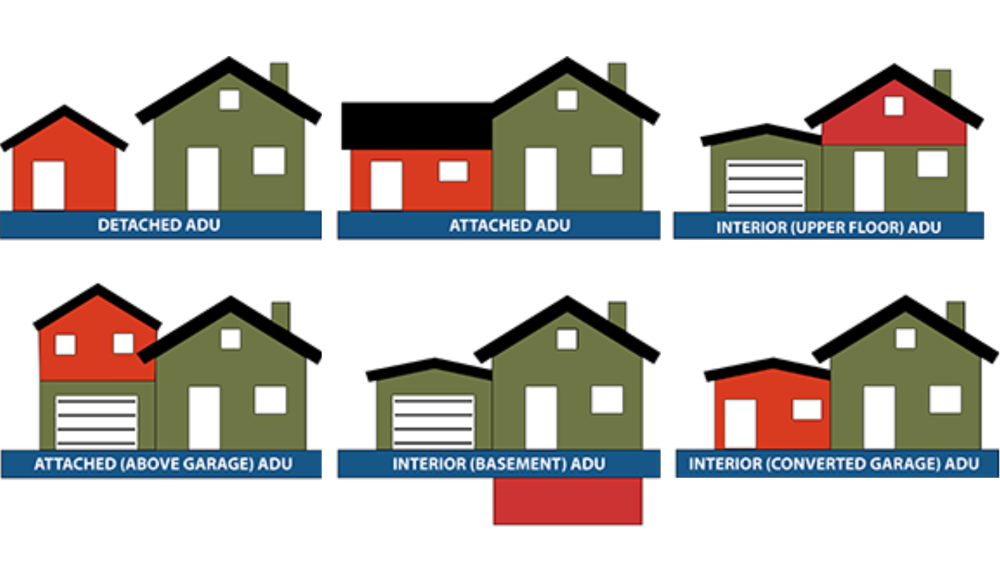In case you’ve been living under a rock, you probably know about the national housing shortage. But did you know that in the last decade, the shortage in DFW has gotten worse, lacking 86,000+ units for the population?
One way to help create more places to live is to increase the occupancy of your property with an accessory dwelling unit (ADU) — think: a suite for your in-laws. You asked and we answered. Here are the basics on ADU’s in Fort Worth.
What’s an ADU?
An accessory dwelling unit is a secondary housing unit on a single-family residential lot that has a bedroom, bathroom, and kitchen. They can be detached structures (like a guest house or tiny home), garage apartments, additions, basements, or internal apartments to the main house.
The most important thing to remember is that an ADU is an accessory, meaning it is an extension of the main residence, but cannot be used as a separate independent residence. For example, they can be used for an elderly relative, hence the nickname granny flat, but can’t be sold as a separate property.

ADUs can take several forms.
Graphic courtesy of the American Planning Association
The Dos
ADUs are allowed in Fort Worth as long as they fall into the correct residential zone + meet the city’s requirements — some of which include:
- Must meet the city’s building code for safe, habitable structure
- Must maintain the property’s setbacks (or clearance distance from the property line)
The Don’ts
There are a few things to keep in mind when considering an ADU. The structure cannot:
- Exceed the height of the primary structure
- Push the property’s total rooftop area over the maximum lot coverage
Where do I start?
First things first, figure out if your property falls into the correct residential zone, what type of permit you need, and the associated fees. Plug your project details into the city’s permit portal to learn more.
Scroll through the slideshow for a quick demo.



















